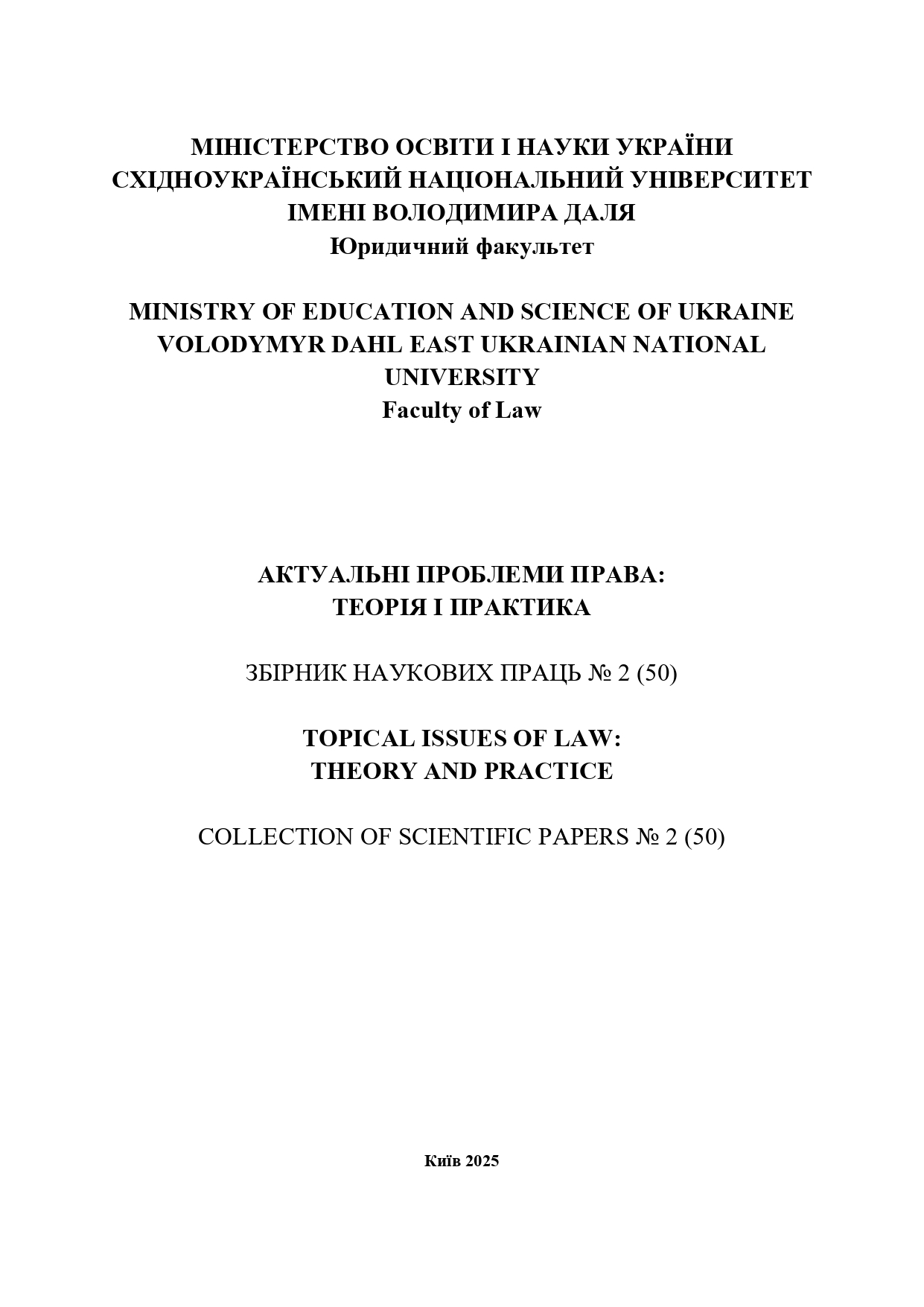TAX ETHICS AND LEGAL MECHANISMS: WAYS TO EFFECTIVELY COMBAT TAX EVASION IN UKRAINE
DOI:
https://doi.org/10.33216/2218-5461/2025-50-2-62-71Abstract
The article is devoted to analysing the
relationship between tax ethics and legal mechanisms
for combating tax evasion in Ukraine, as key factors
determining the efficiency of the tax system in the
current socio-economic context. At the centre of the
study are the theoretical and methodological
foundations of tax ethics, factors influencing its
formation, as well as the regulatory framework and
organisational structure of state policy concerning the
detection and prevention of tax offences. The article
substantiates the thesis that a high level of tax culture
of the population not only promotes voluntary
fulfilment of tax obligations, but also significantly
affects the effectiveness of law enforcement, reduces
public tolerance to offences in this area and
strengthens the authority of state institutions.
It is emphasised that the isolated application of
punitive mechanisms, without due attention to
formulating the ethical foundation of tax relations, is
ineffective and even counterproductive, as it fails to
ensure sustainable outcomes. Tax ethics is viewed as a
complex phenomenon shaped by historical, cultural,
social and economic prerequisites, which requires a
targeted state policy in the field of education, public
awareness, and the creation of transparent and fair conditions for fulfilling tax obligations.
Attention is drawn to the fact that the current
system for combating tax offences in Ukraine faces a
number of significant challenges. These include legal
fragmentation, excessive complexity of legislation,
lack of consistent court practice in cases of tax crimes,
and limited institutional capacity of the controlling
authorities. An important aspect is the presence of
internal corruption in the tax system itself, which
undermines taxpayers' trust in the state and offsets the
potential of even effectively written legislative norms.
The importance of introducing digital technologies,
such as e-audit, big data analytics, and automated risk
management systems, as tools to increase
transparency and reduce the subjective factor in tax
administration is also emphasised.
The need is noted to reform not only the legal
framework but also the managerial approaches to
shaping the relationship between the state and the
taxpayer. In this context, the experience of countries
with a high level of tax discipline (in particular, Scandinavian countries, Germany, and Canada)
demonstrates the effectiveness of the ‘soft
enforcement’ model, which combines elements of
service orientation, partnership, and moral
responsibility. Such a model can be adapted to the
Ukrainian context, provided that there is
comprehensive institutional reform, political will and
sustained cross-sectoral dialogue.
It is substantiated that only a harmonious
combination of legal, organisational, and
informational-educational measures can ensure a
genuine reduction in the level of tax evasion. A
comprehensive model for counteracting tax offences is
proposed, which includes the improvement of
legislation, the digitalisation of fiscal control, the
enhancement of professional integrity and efficiency
of supervisory bodies, as well as the cultivation of a
high level of tax awareness within society. It is
emphasised that reducing fiscal pressure on
businesses, enhancing budgetary transparency, and
promoting voluntary tax compliance are key
conditions for building a long-term effective tax
system. In conclusion, the article presents a holistic
vision of tax policy as a synthesis of ethical values and
legal standards within the context of building a financially stable and socially responsible state.
Keywords: tax ethics, tax evasion, tax culture, legal mechanisms, tax legislation, fiscal discipline, tax control.

